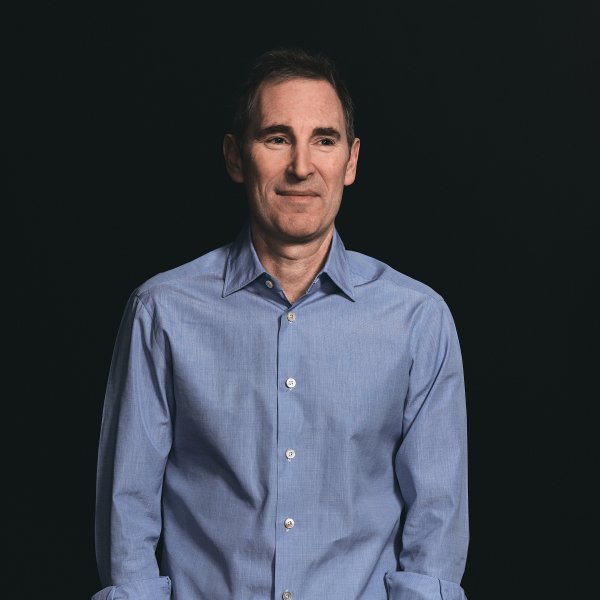It was an irresistible David and Goliath tale: last May, a handful of activist investors from a tiny San Francisco investment firm named Engine No. 1 took on the $350 billion behemoth ExxonMobil—and won. Barely 18 months old, the firm spent just $12.5 million pushing climate action at Exxon, and won three seats for its candidates on its board of directors—a victory that stunned the financial industry and shook Big Oil.
Instrumental in Engine No. 1’s campaign was CEO Jennifer Grancio, who had spent years as an executive at BlackRock, the world’s biggest asset-management company. For weeks before the meeting, the Engine No. 1 team lobbied Exxon’s major shareholders, arguing that the company would face serious financial problems without far-reaching environmental change. The shareholders were convinced, voting in independent board members to help shake up Exxon.
Nearly a year on, Engine No. 1 is nowhere near done. It is now pushing for a raft of changes in the biggest public companies, and mobilizing regular investors to do the same. TIME recently sat down with Grancio to discuss the firm’s splashy business moves and what comes next.
TIME: Was Engine No. 1’s ExxonMobil campaign a one-off? Or do you have other oil majors on your radar?
Grancio: With Exxon, we made a rational economic argument that the company had some work to do so that it wasn’t so dependent on long-dated fossil-fuel projects. We were able to lead other asset managers to follow us, to vote to drive change at Exxon.
That’s created an opportunity for us to work behind the scenes with many other companies in the oil and gas, agriculture, and transportation sectors. We’re having very constructive conversations with a number of firms on how they’re running their businesses over time, to help them think about the same economic argument that we did with Exxon.
Are you seeing success with that strategy at other companies?
As we have gotten into conversation with companies, we are bringing a level of analysis to the CEOs that they’re finding helpful. In the case of Exxon, change needed to happen, and it wasn’t happening. So we thought it required a proxy campaign.
Then take GM. GM is held in all of our three funds. It’s a case where we have a good board and a good CEO [Mary Barra], and they’re trying to drive change.

There are hundreds of shareholder resolutions, and only a tiny number ever get voted on, and an even tinier amount actually pass. What’s wrong with this whole system?
These are public companies. We investors own the companies. You have a right to vote and hold the company accountable. Many investors don’t even realize they own a right to vote in these companies. We need to use the votes, and put pressure on the rest of the [financial-services] industry to make sure that people are using these votes, on these environmental and social issues.
People have been holding these large companies in our portfolios for decades, and have a vote every single year, and can actually drive quite a lot of accountability and change if they use the vote. We think that that’s an opportunity. Some of the proposals are more perfunctory, in many cases not controversial, or a big opportunity to drive change or accountability. But then there is a subset, which are trying to tackle governance or social or climate issues.
We’re always going to be aggressive on how we use our vote. We’re going to publish them in real time, and try to put pressure on the industry to come along with us.
A weekly newsletter featuring conversations with the world’s top CEOs, managers, and founders. Join the Leadership Brief.
Many investors and climate activists would say you should not be investing in fossil-fuel companies at all. That’s the track taken by big pension funds like CalPERS (California Public Employees’ Retirement System).
Our point of view is these are public companies, and we own the public companies. If we care about workers and wages on the social side, and if we care about environmental impact, we should be holding these companies and working with them very aggressively as investors to get them to the right outcome. Many of the funds that have divested, we’ve had conversations with over the last year. I won’t say who. Some of them are thinking maybe that was not the best strategy to have divested, because now they don’t have any control over what is going on at these companies.
The financial-services industry is extremely low on women leaders. It’s been an issue on Wall Street for a long time. Does being a woman shape your perspective?
Look, I think the industry has a long way to go. As leaders of these companies, it’s really our responsibility to find people from all different backgrounds. Gender is one issue, but there are all kinds of diversity that’s incredibly additive.
We have a fair number of women in senior leadership positions, and we have diversity across experience in private funds and experience in public markets. I think as we’re working with big asset owners and wealthy individuals, they want to see that diversity reflected in the people they do business with.
Read more: How to Invest in Companies That Are Actually Helping the Environment
Engine No. 1 has pushed for more diversity at Tesla, and voted in favor of a successful shareholder resolution on that. From the outside, it doesn’t seem like much has changed at Tesla, though.
We came out as an advocate for disclosure in the workplace of gender and race. That creates data; that creates transparency. For us as investors, we can then understand: Are they making improvements? What is actually going on? That’s very important for all companies, particularly for a company that gets credit for doing the right thing by climate.
In the case of Tesla, we used our vote. There was enough momentum on that proposal that it passed, which helps all of us as investors to track what they’re doing, and whether they’re making progress.
Engine No. 1 focuses on ESG—environment, social, and governance—issues. But it seems you’re most focused on the E.
You’re right, we are known for climate. On the social side, you will see when we vote this year that we’re voting in many cases for disclosure of race and gender, and workplace metrics that are not widely disclosed. We do a lot of research with a big network of academics. We have a point of view that the way you treat your workers or the diversity of the workforce affects company performance. We don’t have a product specifically out on that yet. But you will see and hear more from us about that over time. It’s a priority. It’s just that the data is a little further behind.
Edited and condensed for clarity
- Cybersecurity Experts Are Sounding the Alarm on DOGE
- Meet the 2025 Women of the Year
- The Harsh Truth About Disability Inclusion
- Why Do More Young Adults Have Cancer?
- Colman Domingo Leads With Radical Love
- How to Get Better at Doing Things Alone
- Michelle Zauner Stares Down the Darkness





